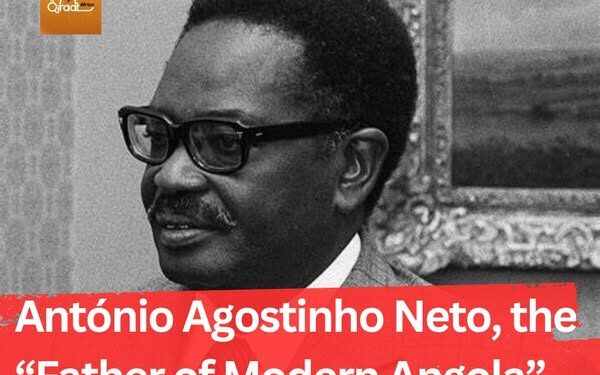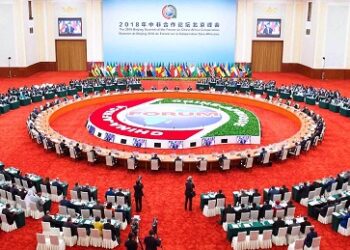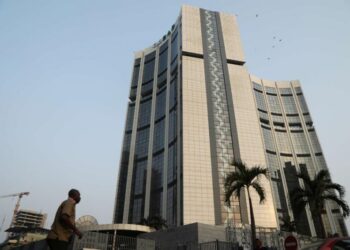António Agostinho Neto is an African liberation revolutionary and former President of Angola who led and won the Angolan war for independence. Not only was Neto a remarkable politician, but he was also a noted physician and famous poet.
Neto was born on September 17, 1922, at Icolo e Bengo, Angola (then a Portuguese colony), to Agostinho Neto, a Methodist minister, and his wife, Maria da Silva, a school teacher. He had been assimilated into Portuguese colonial society by gaining a school education at a Methodist mission station where his father was the minister, and he proceeded to university studies in Lisbon.
There his radical politics fell foul of the dictatorial police, and after a spell in prison he escaped, via London, to become an itinerant political exile in Africa. There he became a guerrilla commander leading small bands of soldiers who fought against both a Portuguese conscript army and rival political movements seeking independence for Angola.
Neto initially gained recognition in 1948, when he published a collection of poems in Luanda and joined a national cultural movement aiming at “rediscovering” indigenous Angolan culture (similar to the Negritude movement in French-speaking African nations). His first of several political arrests occurred shortly afterward in Lisbon, where he had gone to study medicine.
Neto moved back home as a doctor in 1959 but was arrested in front of his patients on 8 June 1960 for his outspoken resistance to colonial authority. His patients and supporters marched for his release from Bengo to Catete but were stopped when Portuguese soldiers shot at them, killing 30 and wounding 200 in what became known as the Massacre of Ícolo e Bengo.
At first Portugal’s government exiled Neto to Cape Verde. Then, once more, he was sent to jail in Lisbon. After international protests were made to Salazar’s administration urging Neto’s release, Neto was freed from prison and put under house arrest. From this he escaped, going first to Morocco and then to Congo-Léopoldville.
In 1974 the Portuguese colonial empire imploded, and Neto found himself leader of the largest nationalist movement in Luanda, the Movement for the Popular Liberation of Angola (Movimento Popular de Libertação de Angola; MPLA). On November 11, 1975, he became Angola’s president as the last Portuguese governor-general sailed away on a gunboat under cover of darkness.
In this capacity as Angola’s first president, Neto established the groundwork for the newly independent state, managing the intricacies of postcolonial nation-building and the beginning of a long-running civil conflict. His goal for Angola included not only political independence but also social fairness and economic growth.
Agostinho Neto also participated in the constitutive conference of the Organization of African Unity (OAU), currently the African Union (AU), held in Brazzaville, and later in other events such as those in Paris, Geneva, and the World Congress of Peace and ILO, among others.
However, Neto’s four years in the presidential palace were not happy ones. Rival political movements not only challenged his legitimacy but also made unholy military alliances with South Africa, Congo, and the United States. He also alienated his domestic constituents, and when they attempted a coup d’état, he rounded on them with all the ferocity that he had experienced himself when being persecuted by the Portuguese political police. His health rapidly deteriorated, and two years later he was flown to Moscow, albeit too late, to seek a cure. He passed away on 10 September 1979.
The Agostinho Neto Mausoleum was built in his honor in 2012. According to Sharelle M. Sturdivant-Thompson and Kathy Curnow, the mausoleum “is an obelisk-like concrete structure towering above the city of Luanda. It occupies the center of the Agostinho Neto Cultural Center, which takes up 4,633 square miles of Luanda, and serves as Neto’s final resting place. … The tower was designed to reference Neto’s poem “The Path of Stars” and is named after his book “A Sacred Hope.”
Below is Agostinho Neto’s poem titled “Havemos de Voltar” (in Portuguese), meaning “We Shall Return” in English:
Havemos de voltar
Às casas, às nossas lavras ÀS nossas terras Às nossas minas de diamantes Aos nossos rios, nossos lagos À frescura da mulemba À marimba e ao quissange À bela pátria angolana Havemos de voltar |
We shall return (Translation in English)
To the houses, to our crops, To our lands To our mines of diamonds To our rivers, our lakes To the shade of the mulemba To the marimba and the quissange To our beautiful Angolan homeland We shall return |



























































